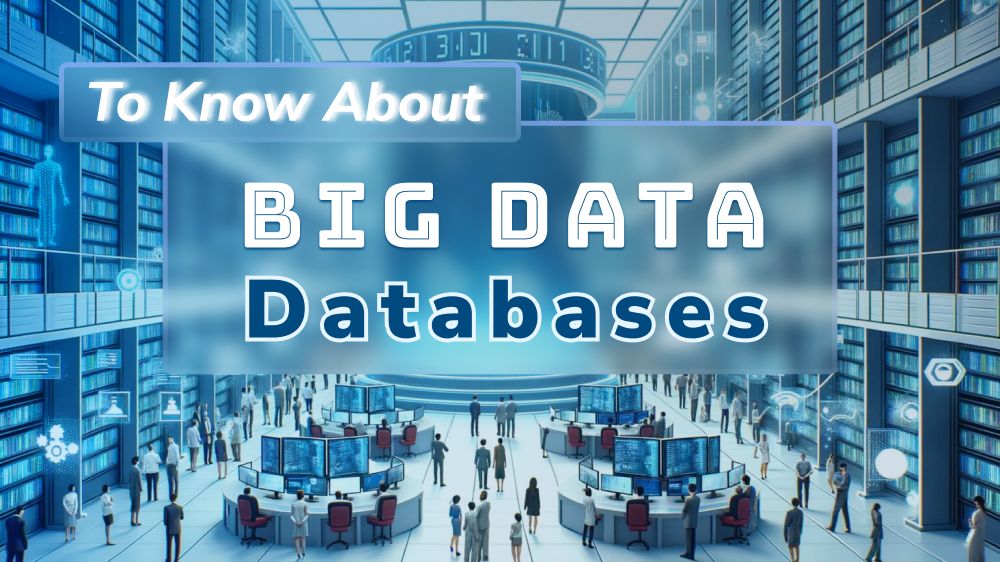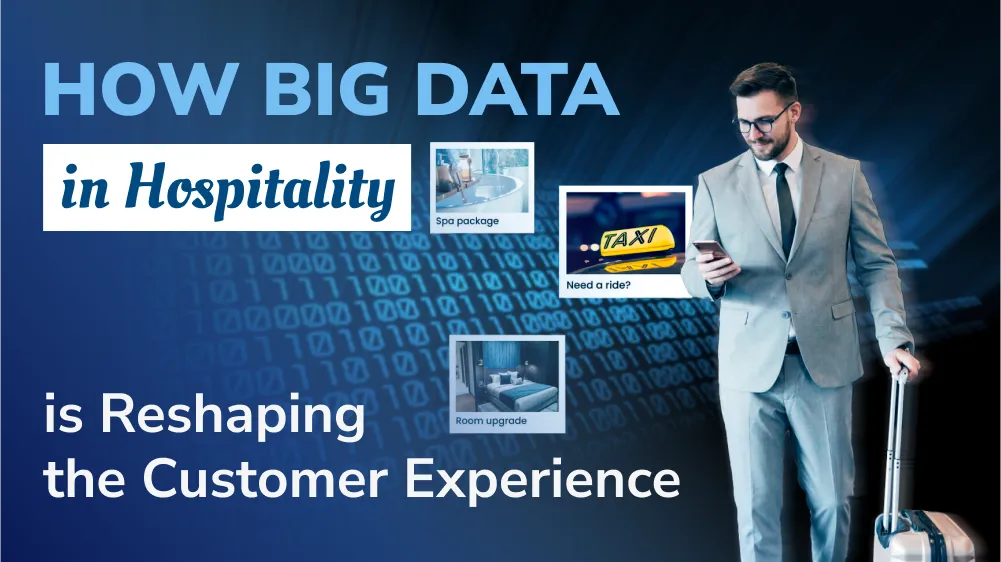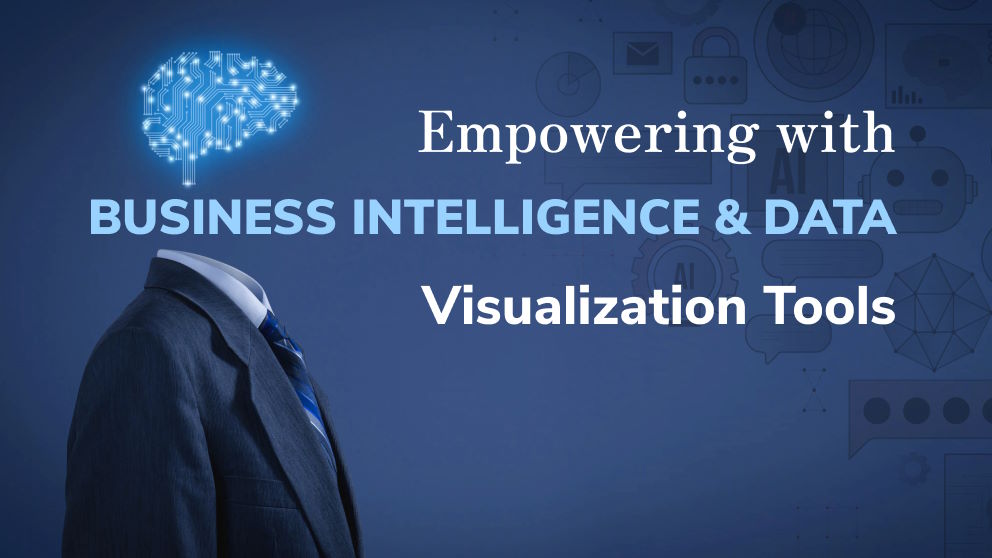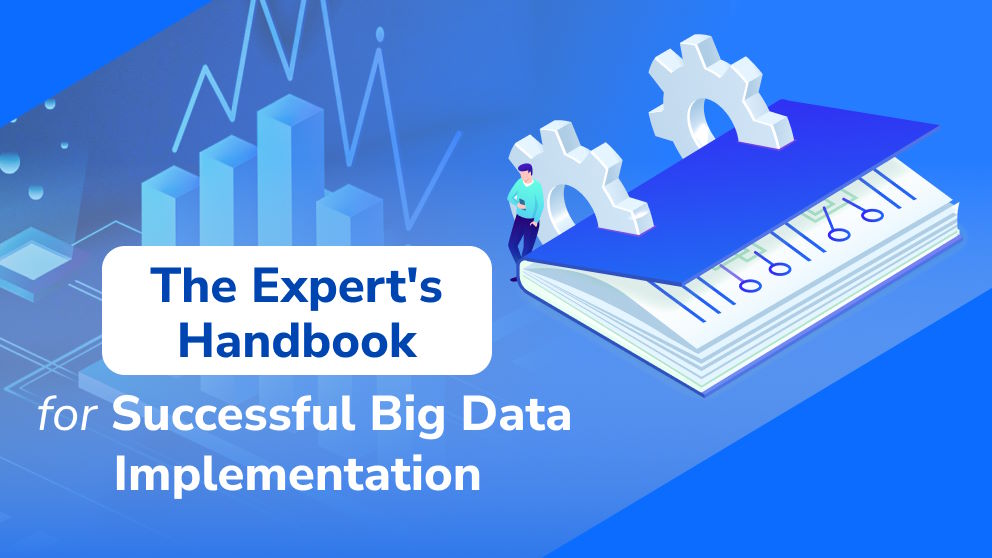
So You Want to Be a Big Data Software Engineer? Here’s What You Need to Know

Content Map
More chaptersWith 2.5 quintillion bytes of data created each day, organizations worldwide are drowning in digital deluges according to IBM. That’s why big data engineering is one of the hottest and most future-proof careers, these specialists develop the scalable platforms and analytical models helping firms extract value from mammoth datasets.
Big data engineers build cloud-based data warehouses capable of processing and storing petabytes worth of customer profiles, sensor readings and online transactions. They also create streaming analytics for real-time insights into supply chains, ad campaigns and financial markets. An estimated 83% of companies are now competing primarily on analytics and data-driven innovations as well.
So, if you’re considering a career as a big data software engineer, you’re on the right path. Here, we’ll take you behind the coveted title of “big data engineer.” Discover the in-demand technical skills, common job roles, and typical career paths. You’ll also learn where the highest paying jobs are and emerging areas like machine learning. Are you ready to develop solutions harnessing data’s untapped potential at massive scales?
Key Takeaways:
- Master the Foundational Skills: A successful big data software engineer needs a strong foundation in computer science, statistics, and database management. This skill set allows you to work effectively with complex data structures, analyze large datasets, and design efficient data pipelines.
- Embrace Essential Technologies: Familiarity with big data technologies like Spark and Hadoop, as well as cloud platforms like AWS or Azure, is crucial. These tools are essential for processing, storing, and analyzing vast amounts of data.
- Develop Specialized Expertise: While core competencies are important, consider specializing in a specific area of big data, like data visualization, machine learning, or data security. These specializations can enhance your marketability and position you for success in the big data field.
Get to Know Big Data Software Engineering

Big data software engineering is a specialized discipline within the broader sector of computer science that attends to the development and maintenance of software systems capable of managing and manipulating large volumes of data. The term ‘big data’ refers to data sets that are so vast and complicated that traditional data processing software is inadequate to handle them.
In the realm of software engineering, big data encompasses not only the data itself but also the various software tools, techniques, and frameworks used to analyze, process, and manipulate this data. This includes everything from database systems designed to store big data (like Hadoop’s HDFS or Google’s BigTable) to programming models for processing it (like MapReduce or Spark), to machine learning algorithms for analyzing it.
The role of big data software engineering in leveraging big data technologies for data processing and analysis is multifaceted and critical. Data scientists often rely on the tools and systems developed by big data software engineers to carry out their work.
One of the primary roles of big data software engineering is to create data processing pipelines. These pipelines take raw data, process it, and turn it into valuable insights. This involves using technologies like Hadoop or Spark to process and analyze the data, and then using further tools to visualize and interpret the results. This is where the data analysis comes into play.
Another key role is ensuring the efficient data storage and retrieval. This involves designing and implementing databases that can handle the size and complexity of big data, as well as ensuring that data can be accessed and retrieved quickly and efficiently.
Finally, big data software engineers play a crucial role in the analysis of data. They leverage statistical methods and machine learning algorithms to analyze and interpret the data, turning raw data into actionable insights. This is a critical toolkit for any data scientist, allowing them to extract meaningful information from the vast amounts of data they work with.
Essential Skills for Big Data Software Engineers

The world of big data is driven by skilled professionals who can not only understand the complexities of data science but also design and implement the systems to process and analyze them. In order to thrive in big data engineer jobs, a specific skill set is crucial. Here’s a breakdown of the essential skills for aspiring and professional data engineers:
Proficiency in Common Big Data Programming Languages
A professional data engineer needs to be proficient in several programming languages. Java, Python, and Scala are among the most commonly used languages in big data engineering jobs. Each of these languages has its own strengths and is used in different aspects of big data engineering. For instance, Java is often used for building massive data processing systems, while Python is popular for its easy-to-use syntax and strong support for data analysis libraries.
A core set of big data engineer skills is an understanding of data structures and algorithms. Big data systems often deal with massive datasets, and the ability to design and implement efficient data structures and algorithms is crucial for optimizing performance and scalability. By mastering concepts such as arrays, linked lists, trees, and hash tables, as well as foundational algorithms like sorting, searching, and graph traversal, big data engineers can develop software solutions that can effectively manage and process vast volumes of data in a timely and efficient manner.
Data Manipulation and Querying Skills
Big data software engineers must be well-versed in both SQL and NoSQL database technologies. They should be able to design and manage data storage solutions, as well as perform complex data manipulation and querying tasks using SQL and NoSQL query languages. SQL databases, such as MySQL, PostgreSQL, and Oracle, are commonly used for structured data storage and processing, while NoSQL databases, like MongoDB, Cassandra, and Couchbase, excel in handling unstructured and semi-structured data at scale. Knowledge of these databases is essential for data modeling and creating efficient data pipelines.
In addition to database skills, big data engineers should be proficient in techniques like SQL queries, MapReduce, and other data manipulation and processing approaches. These skills are essential for extracting, transforming, and analyzing large-scale data from diverse sources. For example, SQL queries allow for efficient data retrieval and transformation, while MapReduce, a programming model for processing large datasets in a distributed computing environment, enables the parallelization of complex data processing tasks.
Distributed Computing Frameworks
Big data software engineering requires a deep understanding of distributed computing concepts, such as those found in Apache Spark and Hadoop. These frameworks allow the processing and analysis of massive datasets in a scalable and fault-tolerant manner. Concepts like distributed file systems, resource management, and parallel processing are crucial for designing and deploying effective big data solutions.
Big data engineers should be proficient in working with distributed computing frameworks, including setting up and configuring the necessary infrastructure, writing efficient code for data processing and analysis, and optimizing the performance of these systems. This may involve tasks such as managing HDFS (Hadoop Distributed File System) storage, configuring Spark clusters, and implementing efficient data partitioning and caching strategies to maximize the throughput and responsiveness of the system.
Data Visualization and Reporting
Effective big data software engineering not only involves the technical aspects of data processing but also the ability to present and communicate insights derived from the data. Big data engineers should have the skills to create visually appealing and informative data visualizations that can help stakeholders understand and act on the insights. This may include creating interactive dashboards, infographics, and reports that highlight key trends, patterns, and anomalies within the data.
Big data engineers should be familiar with a range of data visualization and reporting tools, such as Tableau, D3.js, and other libraries, to create compelling and impactful data visualizations and reports. These tools offer a wide range of charting and visualization options, allowing engineers to effectively communicate complex data insights to diverse audiences, from business executives to data analysts.
Career Path and Learning Resources

Exploring Career Opportunities
The field of big data software engineering offers a wide range of exciting career opportunities. As the demand for data-driven insights and solutions continues to grow, big data engineers are in high demand across various industries, including financial institutions, tech companies, healthcare organizations, e-commerce platforms, and government agencies.
Big data software engineers can take on a variety of roles, such as data engineer, data scientist, machine learning engineer, business intelligence analyst, and data architect. These roles often involve tasks like designing and implementing data pipelines, building scalable data processing and analytics systems, developing predictive models, and creating data visualization and reporting tools.
Moreover, big data engineers can specialize in certain domains or technologies, such as cloud computing, real-time streaming, natural language processing, or computer vision, further enhancing their career prospects and earning potential. As the field continues to evolve, new and emerging roles, such as data ethicist, data governance specialist, and AI/ML operations engineer, are also emerging, providing additional avenues for career growth and development.
Recommended Learning Resources
To keep pace with the rapidly growing landscape of big data software engineering, it is essential for professionals to continuously upskill and expand their knowledge. Fortunately, there are numerous high-quality learning resources available, both online and offline, that can help big data engineers stay ahead of the curve.
Online courses, such as those offered by platforms like Coursera, Udemy, and edX, provide comprehensive training on a wide range of big data-related topics, including programming languages, data engineering frameworks, machine learning algorithms, and cloud computing. These courses often include hands-on projects and interactive exercises, enabling learners to apply their newfound knowledge in practical scenarios.
In addition to online courses, there are many informative books and technical publications that delve deep into the various aspects of big data software engineering. Some recommended titles include “Designing Data-Intensive Applications” by Martin Kleppmann, “The Data Engineering Cookbook” by Andreas Kretz, and “Hands-On Machine Learning with Scikit-Learn, Keras, and TensorFlow” by Aurélien Géron.
For those seeking formal certifications, organizations like Apache, Google, Amazon, and Microsoft offer various big data and cloud-related certifications that can help validate an individual’s expertise and proficiency in the field.
Embrace the Challenge, Become a Big Data Engineer
The world of big data is a vast and exciting frontier, brimming with opportunities for those who possess the right skill set. If you’re intrigued by the challenge of harnessing the power of massive datasets and transforming them into actionable insights, the above-mentioned skills and knowledge might be the perfect path for you to become a big data software engineer.
This journey requires dedication, a thirst for knowledge, and a passion for technology. But the rewards are substantial. You’ll be at the forefront of innovation, empowering organizations to make data-driven decisions that shape the future.
Orient Software is a leading expert in big data engineering. We understand the intricacies of this field and the skills required to succeed. We offer a supportive environment where you can learn, grow, and contribute to groundbreaking projects. Let us help you chart your course in big data engineering. Contact Orient Software today to explore how we can support your career aspirations!
We believe in the power of big data to unlock a world of possibilities. With the right guidance and a commitment to learning, you can be a part of this transformative journey.






